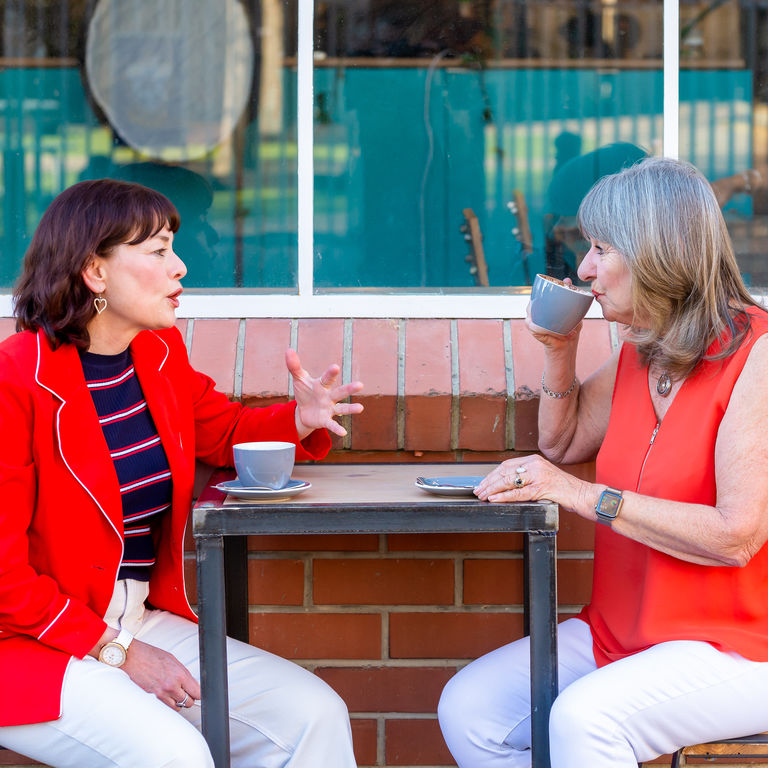Equity is a fundamental COTA value to reduce the impact of inequality, disadvantage and discrimination of Australians as they age. A focus, therefore, on the different ageing journeys of men and women is very important in our advocacy.
There is a rising disadvantage among many older women as a result of the accumulation of inequality throughout our lifetimes. Women are more likely to have lower levels of superannuation, little or no equity in a home and negligible savings for later in life. In addition, women are less likely to have a financial plan. In fact we tend to underestimate our longevity, causing us to be somewhat unprepared for our ageing.
Perhaps the two most significant factors that contribute to women’s disadvantage as they age are our experiences in the labour market, and our disproportionate contribution to the unpaid care of others. By comparison with men, women are less likely to be engaged in regular, full-time employment or study, and a typical working life for women includes moving from full to part time or casual hours , with time taken out of employment along the way . Research suggests that women provide unpaid care more often in a lifetime, for longer periods and more intensively than men.
Unpaid carers
These caring responsibilities often mean that women will cease employment or take time out of work, sometimes for long periods, and often experience significant difficulty in returning to full time work. This impacts career progression and opportunities, and contributes to lower average earnings for women, known as the gender pay gap.
But it’s not just caring responsibilities that cause this gap. It also results from lower education levels for women, lower wages in female-dominated industries and discrimination and bias in hiring and pay decisions that leave women earning less than men.
Discrimination in the workplace
Discrimination and bias are especially felt for older women, who are also susceptible to age discrimination in the workplace.
Age discrimination includes being overlooked for promotion, missing out on training, spending twice as long out of work and ongoing underemployment. And while ageism in the workplace impacts both men and women, research suggests it is the double jeopardy of age and gender that prevents women in their employment ambitions. For example, researchers in the US reported that older women had to apply twice as often for a job to get the same number of interviews as others. The research found that women are more likely to be affected by “lookism”, where bias (often unconscious) emphasises physical appearance and preferences being male and younger ahead of merit.
These experiences in paid and unpaid work directly cause greater economic insecurity in retirement for women than men.
On average, women begin retirement with half the superannuation of men and a much greater chance of spending their older years in poverty.
Housing stress and homelessness
A significant consequence of this lifetime of disadvantage is an increased risk of housing stress and homelessness.
Women with little or no savings or superannuation and who are renting, are vulnerable to homelessness as soon as they are unable to work7.
Between 2011 and 2016 the number of older women who were homeless in Australia increased by more than 30% and this number is rising, with single women the most vulnerable, as well as those who are Aboriginal or immigrants from a non-English-speaking country.
The risk of homelessness is due both to lower levels of home ownership and income, and to a lack of access to affordable housing.
Public housing has been an important option for older single women on low incomes in the past but there has been a decline in stock and new criteria prioritises the support of people in crisis.
Private rental housing is a very poor housing option as we age because it rarely provides the affordability, adaptability, security of tenure and access to services, amenities and community required to age well.
COTA SA advocating for equality
As Australian women age, we become increasingly invisible along with the unique challenges we face.
COTAs at both the State/Territory and national levels play a significant role in highlighting the experiences of older women, telling our stories and advocating for tailored policies and services that address the growing disadvantage and increasing barriers to ageing well for many older women. In particular, COTA is active in arguing for:
- a focus on more social housing that targets older women
- policies that do not penalise women for assuming informal caring roles
- addressing the wage and opportunity inequality that plagues women throughout their careers
- improving access to financial advice and planning for women across their lifespan
- supporting older women to re-join or ramp up their careers in later life
- addressing the particular disadvantage experienced by low income, older women and those from diverse backgrounds.
Written by
Anne Burgess AM, Deputy President COTA SA Board and Chair COTA SA Policy Council
Jodi Slater, Senior Policy and Engagement Officer, COTA SA
You may also be interested in
Key proposals in our 2023/24 State Budget submission will help to address financial and housing insecurity and unemployment — serious issues faced by older women. Read our full budget submission at the link below.


